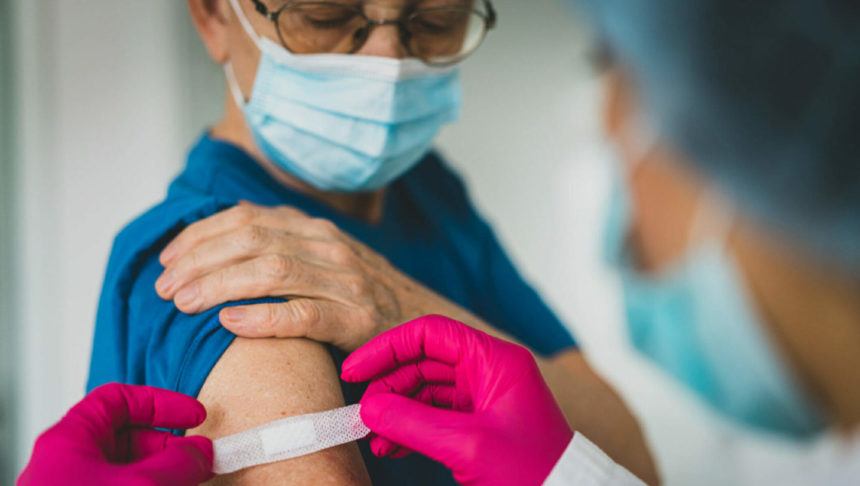
Only about 20% of adults in the United States have received bivalent mRNA COVID-19 vaccine booster doses, a federal analysis shows. Those who have received only monovalent doses likely at a disadvantage when it comes to protection against hospitalization, the researchers say.
Investigators from the Centers for Disease Control and Prevention analyzed more than 85,000 hospitalizations of people aged 18 years and older with COVID-19–like illness. Between 7 days to 2 months after vaccination, bivalent vaccine doses were 62% effective in preventing associated hospitalization among adults with no immunocompromising conditions, they found. Vaccine efficacy, meanwhile, was 28% for people who were immunocompromised.
In the former group, protection against hospitalization showed signs of waning between 2 and 6 months after vaccination, although was more sustained against critical illness, with 50% protection at 4 to 6 months, they added. This suggests that bivalent vaccines “provide durable protection against the most severe outcomes from COVID-19,” they wrote.
Monovalent disadvantage
The problem is how few people have received these vaccines, they said. For most adults who have received only a monovalent booster vaccination, their last shots were given a full year ago.
Notably, patterns of waning vaccine efficacy were the same in younger adults and those aged 65 years and older. But seniors are at a much higher risk of hospitalization and death, suggesting that additional doses may be beneficial, the researchers added.
“Results of this analysis indicate that these adults might have relatively little remaining protection against COVID-19-associated hospitalization compared with unvaccinated persons, although might have more remaining protection against critical illness,” the authors reported.
The CDC in April 2023 recommended that seniors and immunocompromised people receive more than one booster dose, and optional additional bivalent vaccine doses are available. Older adults have sustained relatively high vaccination rates when compared to their younger cohorts. In U.S. nursing homes, 52% were up-to-date with their shots for the week ending May 28.
“All adults should stay up to date with recommended COVID-19 vaccines,” the researchers concluded.
Related stories:
FDA sanctions 2nd dose of updated booster for seniors, simplifies vax schedule
Data show bivalent booster shots effective against latest COVID variants (April 2023)
LTC residents mount immune fight after bivalent booster shot, study shows (Jan. 2023)




